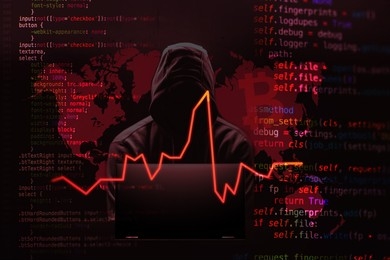Over the past year, there’s been no shortage of scientists, tech CEOs, billionaires and lawmakers sounding the alarm over artificial intelligence (AI) — and now, even the Pope wants to talk about it too.
In a hefty 3,412-word letter dated Dec. 8, Pope Francis — the head of the Catholic Church — warned of the potential dangers of AI to humanity and what needs to be done to control it. The letter came as the Roman Catholic Church prepares to celebrate World Day of Peace on Jan. 1, 2024.
Pope Francis wants to see an international treaty to regulate AI to ensure it is developed and used ethically — otherwise, we risk falling into the spiral of a “technological dictatorship.”
“I urge the global community of nations to work together in order to adopt a binding international treaty that regulates the development and use of artificial intelligence in its many forms.”
The threat of AI arises when developers have a “desire for profit or thirst for power” that overpowers one’s wish to exist freely and peacefully, the Pope explained.
“The inherent dignity of each human [...] must undergird the development of new technologies and serve as indisputable criteria for evaluating them [...] so that digital progress can occur with due respect for justice and contribute to the cause of peace.”
Technologies that fail to do this “aggravate inequalities and conflicts” and, therefore, can never count as true progress, he added.
Meanwhile, the emergence of AI-generated fake news is a “serious problem,” added the Pope, which could lead to growing mistrust in the media.
The Pope was recently a victim of generative AI when a fake image surfaced of him wearing a luxury white puffer jacket went viral in March.

Pope Francis, however, also acknowledged the benefits of AI in enabling more efficient manufacturing, easier transport and more ready markets, as well as a revolution in processes of accumulating, organizing and confirming data.
But he’s also concerned that AI will benefit those controlling it and leave a large portion of the population without employment to pay for a living:
“There is the substantial risk of disproportionate benefit for the few at the price of the impoverishment of many.”
Pope Francis has long warned about the misuse of emerging technologies, stating that “both theoretical and practical moral principles” need to be embedded into them. He is, however, often seen as more tech-savvy and forward-looking than his predecessors.
Pope Francis’ recent remarks come after a year of outcry from all corners of the world over the potential dangers of AI.
Tech leaders, such as Tesla CEO Elon Musk and Apple co-founder Steve Wozniak, have expressed concern about how rapidly AI is advancing. It prompted them and more than 2,600 tech leaders and researchers to sign a petition to pause AI developments in March 2023, sharing concerns that AI more advanced than GPT-4 can pose “profound risks to society and humanity.”
United States President Joe Biden has also expressed concerns. His administration released an executive order on the “safe, secure, and trustworthy development and use of artificial intelligence” in late October to address risks posed by AI.
Related: NFT and Islamic education: A new frontier to teach religion?
Even Hollywood filmmakers and celebrities are adding their thoughts to the issue.
In July, Canadian filmmaker James Cameron reportedly said he had been warning of the dangers of AI since The Terminator, which he directed nearly 40 years ago.
”I warned you guys in 1984 and you didn't listen,” Cameron told CTV News.
The Terminator (1984)
— Monica Mc Callion (@CallionMonica) October 31, 2023
Directed by James Cameron pic.twitter.com/dNBv6fO8fh
“I think the weaponization of AI is the biggest danger [...] I think that we will get into the equivalent of a nuclear arms race with AI, and if we don’t build it, the other guys are for sure going to build it, and so then it’ll escalate,” he added.
Magazine: Experts want to give AI human ‘souls’ so they don’t kill us all











